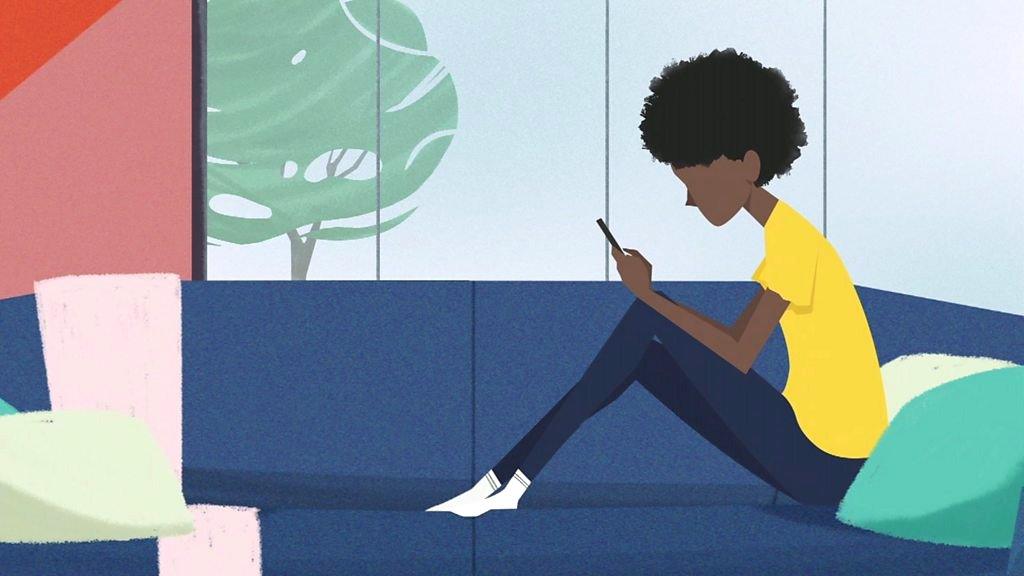Ukraine: How UK, US and the rest of the world reacted
- Published
- comments
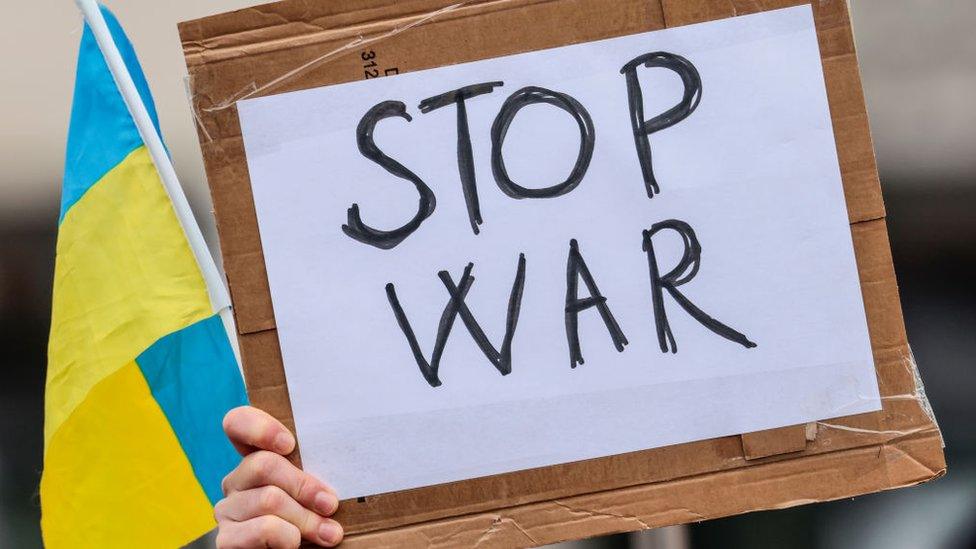
There have been protests around the world following Russia's acts of aggression towards its neighbour Ukraine
Leaders from across the world have been reacting to Russia's invasion of Ukraine.
British Prime Minister Boris Johnson and US President Joe Biden are among the leaders condemning the action.
Russian forces launched a major military assault on Ukraine on Thursday morning, with reports of missile strikes and explosions near major cities.
Even though an attack of some kind has been expected for several months there is still a widespread sense of shock about what has happened around the world.
The US, EU, UK and Japan have imposed financial penalties, called sanctions, against leading Russians and Russian banks.
Prime Minster Boris Johnson says that after 4am UK time he spoke to President Zelensky of Ukraine to offer the support of the UK.
This is what he and other world leaders have been saying.
United Kingdom
Mr Johnson said Russian President Vladimir Putin has unleashed a "tidal wave of violence" against Ukraine. He has announced sanctions to "hobble the Russian economy".
The Prime Minister said the UK was one of the first countries in Europe to send defensive weapons to help Ukraine.
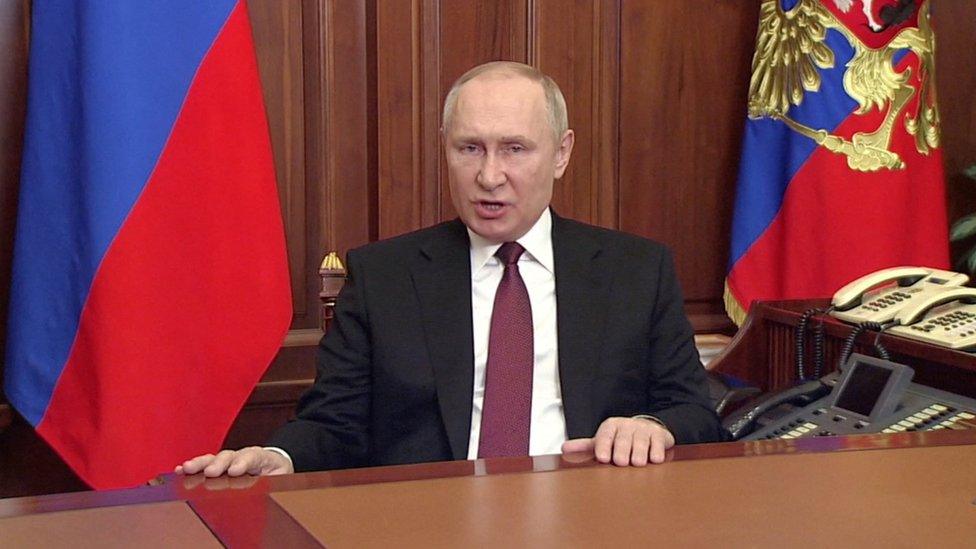
President Putin announced the military attack on Ukraine in a pre-recorded TV address
He said that the UK "cannot and will not just look away" at Russia's "hideous and barbaric" attack on Ukraine.
The PM told the House of Commons the UK would introduce "the largest and most severe package of economic sanctions that Russia has ever seen".
He said all major Russian banks will face a full UK asset freeze, which means they will not be able to access accounts, money or property in the UK.
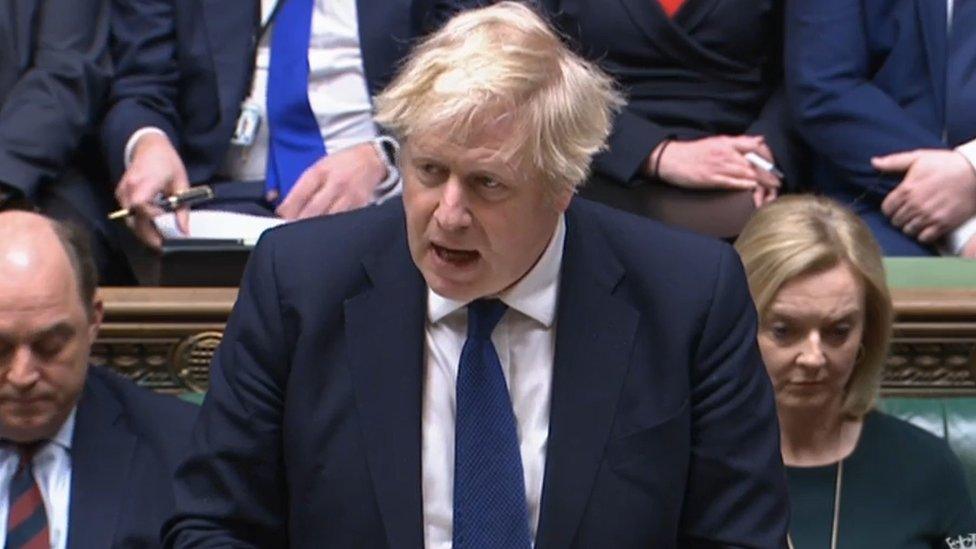
Boris Johnson told announced "severe" economics sanctions against Russia
Around 100 people connected to Putin will also had their assets frozen.
Boris Johnson said there will be limits on the amount Russians can deposit in UK banks.
Russian airline Aeroflot will be banned from landing in the UK and within days all high tech and oil refinery equipment exports to Russia will not be allowed.
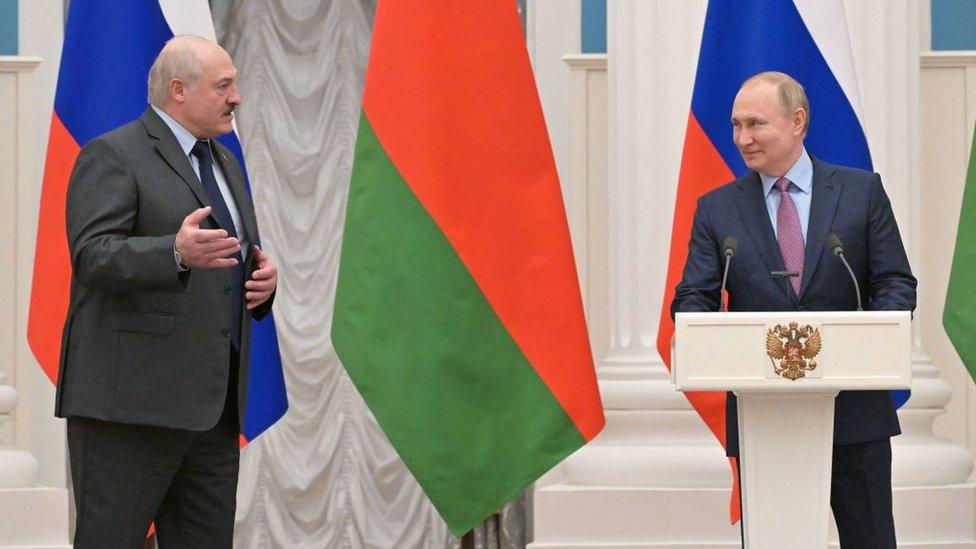
Russia's President Vladimir Putin and his Belarus counterpart Alexander Lukashenko are close allies
Russia's ally Belarus will face similar sanctions because of its role in the attack on Ukraine.
Belarus allowed Russian troops to enter its country to access Ukraine's northern border as part of the invasion.
United States
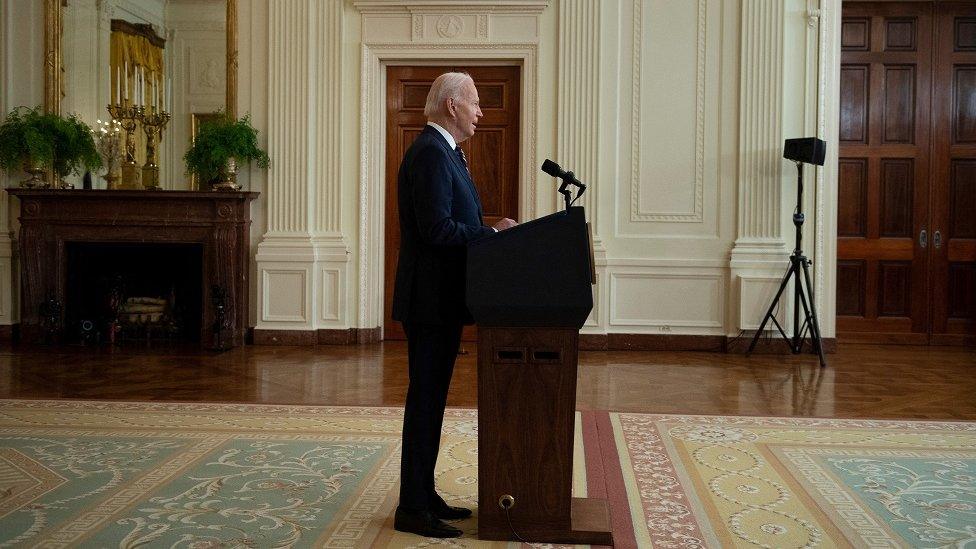
Joe Biden addressed the nation from the White House
Speaking on Thursday US President Joe Biden described the invasion as a premeditated attack without provocation, justification and necessity.
He said: "Putin chose this war, and now he and his country will bear the consequences.''
At the press conference he said the US would be introducing new sanctions to "maximise long-term impact on Russia" but said US forces would not be engaging in the conflict with Russia in Ukraine.
But that troops being sent to Europe "would defend Nato allies" - which includes countries like Poland who share a border with Ukraine.
He added: "America stands up to bullies, we stand up for freedom. This is who we are."
France
French President Emmanuel Macron has said the Russian attack on Ukraine is a "turning point" in European history.
In a televised address to the nation, he says France will stand by Ukraine's side.
Macron added that Russia's actions will have "durable and deep" consequences for the continent.
European Union
European Commission Chief Ursula von der Leyen said the EU stood with Ukraine.
The EU's 27 leaders are due to hold an emergency summit meeting later.
Nato (North Atlantic Treaty Organisation)
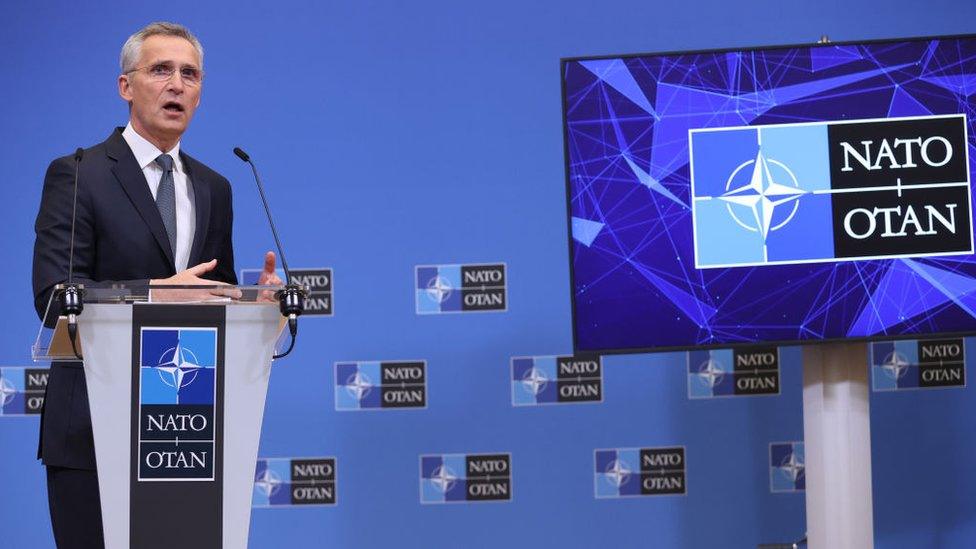
NATO Secretary General Jens Stoltenberg speaking following Russia's military operation in Ukraine
Nato has released a statement condemning "Russia's horrifying attack on Ukraine" calling it "entirely unjustified and unprovoked."
The defence alliance, which counts the UK, US and many European countries as members, has also condemned Belarus for "enabling" the attack.
"This renewed attack is a grave violation of international law, including the UN Charter," Nato said. "It constitutes an act of aggression against an independent peaceful country."
Countries in Eastern Europe prepare to help Ukrainians
Several European countries bordering Ukraine are already preparing for the arrival of refugees fleeing the Russian invasion.
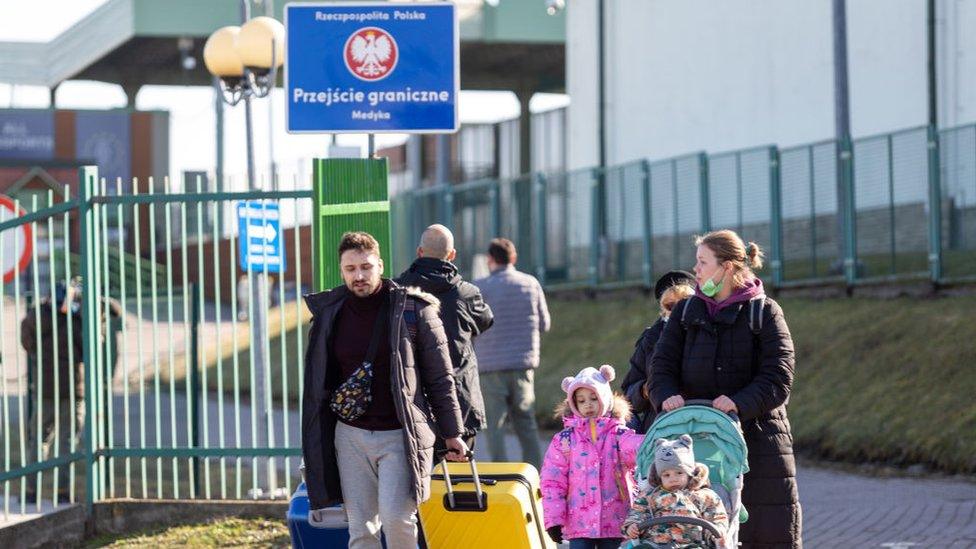
The first migrants from Ukraine have begun entering Poland
Poland is setting up reception points on its border and its hospitals are preparing beds for wounded Ukrainians, says the country's health ministry.
Hungary and Slovakia both say they are ready to welcome refugees and are sending extra troops to manage the likely influx at additional crossings set up on their borders with Ukraine.
Slovakia's Prime Minister, Eduard Heger, urged: "Please let's have compassion and understanding for them."
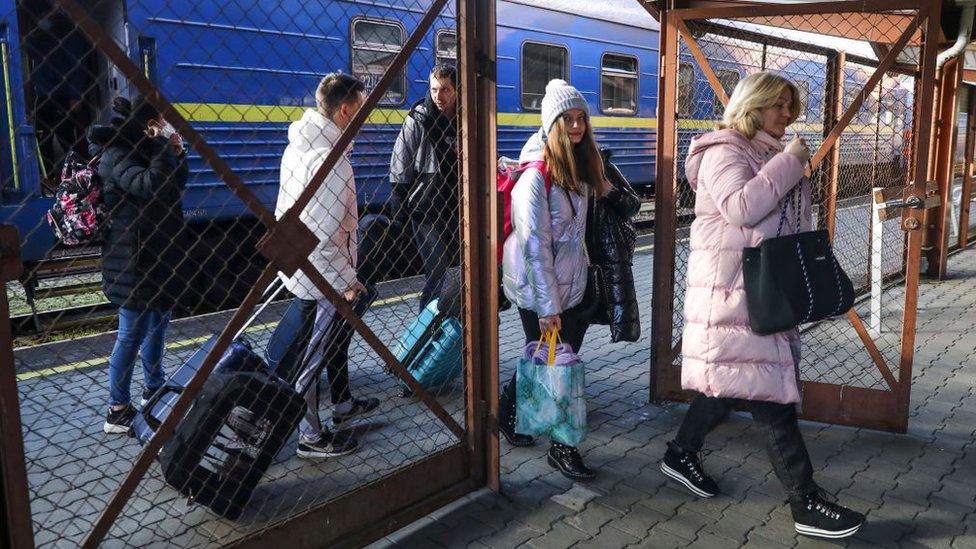
As cars queued on Ukraine's border with Moldova, the country's pro-EU president, Maia Sandu said she was declaring a state of emergency and was prepared to give help to tens of thousands of Ukrainians.
President of Lithuania Gitanas Nauseda also said he was signing a state of emergency to be approved by parliament.
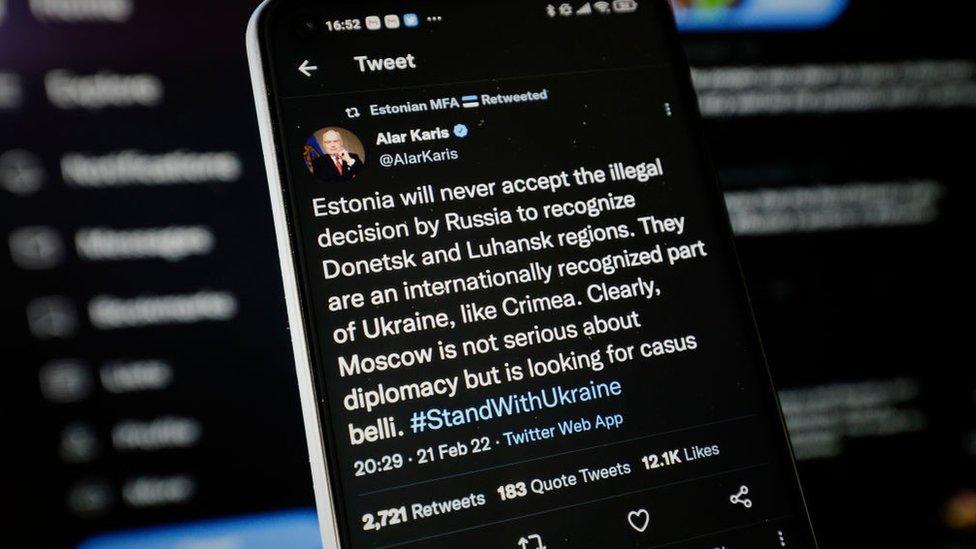
President of Estonia Alar Karis tweeted his support for Ukraine after Russia's actions earlier this week
He announced plans to send army to defend its borders in response to "possible disturbances and provocations due to large military forces massed in Russia and Belarus".
Meanwhile Kaja Kallas, the Prime Minister of Estonia - which borders Russia - has told BBC News "we're gonna help Ukraine with all the means that we can" including political support and by sending weapons.
Preident Kallas said "we must do everything at EU and Nato level for this aggression not to expand."
She has advised Estonians to stay calm and says there is no threat currently on Estonian borders.
- Published24 February 2022
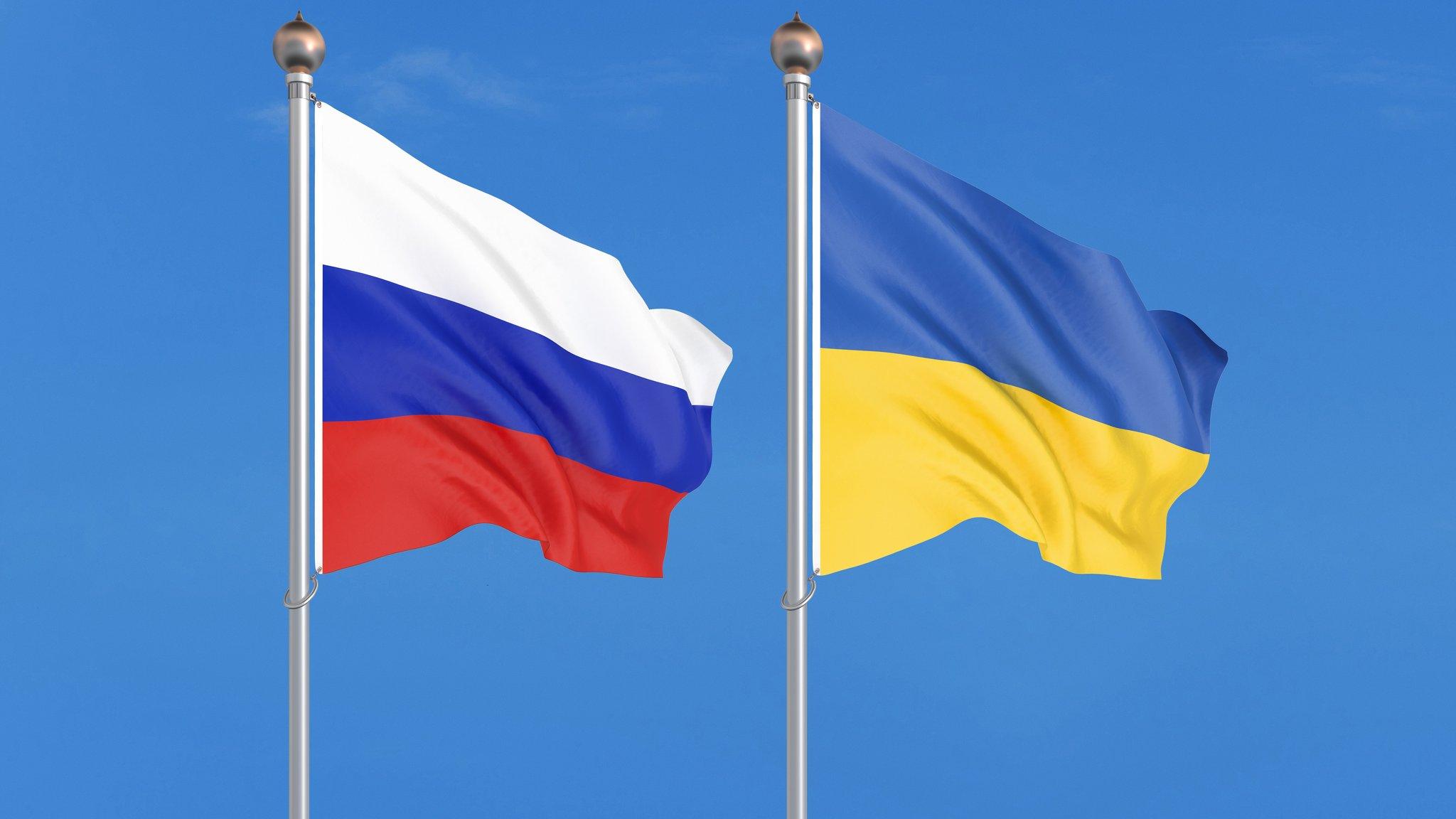
- Published24 February 2022
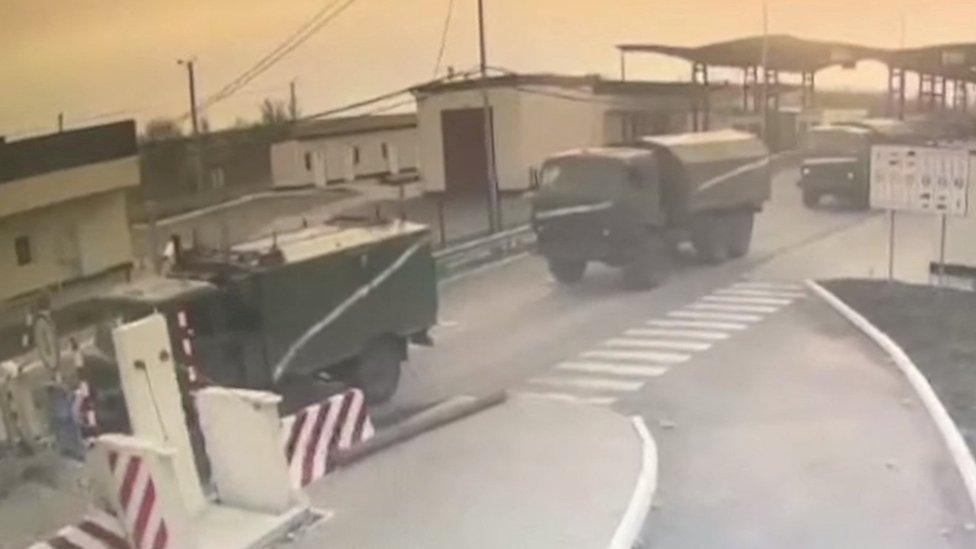
- Published23 February 2022
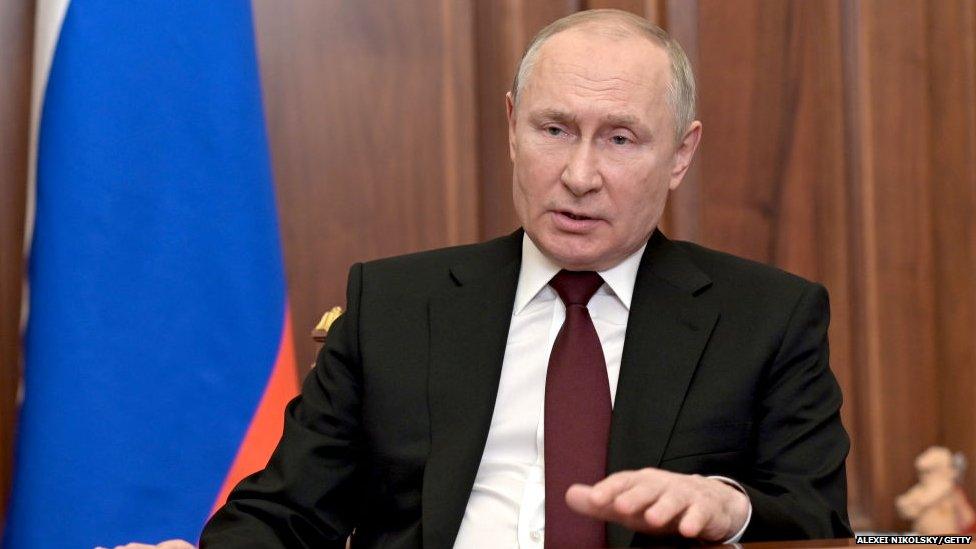
- Published29 August 2022
